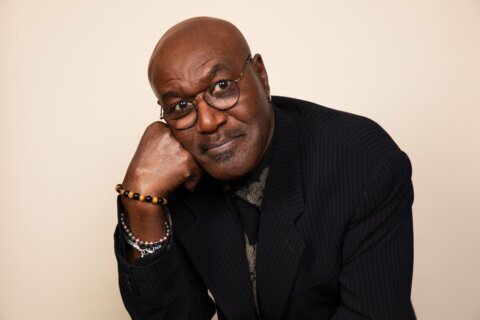After rescuing “SNL” and sharing the big screen with Nick Nolte in “48 Hrs.” (1982) and Dan Aykroyd in “Trading Places” (1983), Eddie Murphy became a blockbuster leading man as the fast-talking Axel Foley in “Beverly Hills Cop” (1984). Directed by Martin Brest, the fish-out-of-water comedy was the year’s top grosser at No. 1 for 13 straight weeks, inventing a new genre for “Lethal Weapon” (1987), “Rush Hour” (1998) and “Blue Streak” (1999).
Audiences couldn’t wait for the action-comedy sequel “Beverly Hills Cop II” (1987), which again became the year’s top grosser thanks to the reliably funny Murphy and slick direction by Tony Scott as his follow up to “Top Gun” (1986). Ironically, the villain was played by Brigitte Nielsen (“Rocky IV”) the same year that she divorced Sylvester Stallone, who turned down “Beverly Hills Cop” to star in “Cobra” (1986).
It was only a matter of time before Hollywood gave us “Beverly Hills Cop III” (1994), a major disappointment widely panned by critics and audiences for its lame theme-park setting at Wonder World and a surprisingly unfunny script. Director John Landis (“Animal House”) complained that a depressed Murphy insisted on making Axel too serious at every turn.
Now, 40 years after the first film and 30 years after the last, we finally get the fourth installment this Wednesday on Netflix. No, it’s not called “Beverly Hills Cop 4,” it’s called “Beverly Hills Cop: Axel F,” named after the iconic techno theme song. The opening credits display the words “Axel F” prominently with “Beverly Hills Cop” in tiny letters, attempting to have a stand-alone title for its aging hero like “Rocky Balboa” (2006) or “Logan” (2017).
Once again, Axel Foley is back on the police force in his hometown of Detroit, preventing robberies and putting the “wise” in wise cracking. He is forced to return to Beverly Hills when he learns of a threat to his estranged daughter, Jane Saunders (Taylour Paige, “Zola”), who grew up to be a defense attorney in Los Angeles. That’s right, she defends the very types of criminals that her father puts away, calling it the “cherry on top” of her daddy issues.
It’s a welcome treat seeing Murphy back in the role of Axel, who is now the character that he’s played the most, twice as many times as he’s played Reggie Hammond, Prince Akeem, Professor Klump and Dr. Doolittle, but tied with his four turns as Donkey in the “Shrek” franchise (he even quotes the ogre by calling Luis Guzmán “layered like a glittery onion”). The mileage barely shows, bringing back the comedic timing that we loved in his prime.
Like the original, this new movie opens with Glenn Frey’s “The Heat Is On,” while the first action sequence features Bob Seger’s “Shakedown” from Part 2. Murphy also wears his same Detroit Lions letterman jacket and runs into plenty of old friends, including Paul Reiser as his Detroit police chief Jeffrey Friedman, Judge Reinhold and John Ashton as his L.A. partners Billy Rosewood and John Taggart, even Bronson Pinchot as the art collector turned weapons dealer Serge.
Still, a lot has changed since 1994. Frey is dead, Seger is 79 years old, and the name “Foley” makes millennials think of Matt or Mick. As Joseph Gordon-Levitt’s new cop says, “The world has changed a bit. You can’t sit across a desk from another male and say something to threaten my manhood and think I’m gonna get flustered with insecurity.” His sickest burn comes flipping through Foley’s police file: “’94, not your finest hour.”
It’s one of the strongest dialogue exchanges by screenwriters Will Beall, Tom Gormican and Kevin Etten, who open with funny banter on racial relations at a Detroit Red Wings hockey game. The best scenes come between father and daughter, driving and bickering in their convertible. We also get a slick new crooked cop villain played by Kevin Bacon, who was doing “Footloose” during “Beverly Hills Cop” (Gordon-Levitt was 3 years old back then).
Australian filmmaker Mark Molloy makes his feature directorial debut after acclaimed shorts and Super Bowl commercials. He deftly helms several action sequences, namely a helicopter chase (“Pull over! I mean, land!”) that at worst recalls Kobe Bryant’s demise and at best delivers a clever cameo on a golf course. It’s almost as meta as Reinhold wearing a Guns N Roses T-shirt, repping Axel Rose as he helps Axel Foley during the final shootout.
As Gordon-Levitt shouts, “They shot off our rotor!” about the malfunctioning chopper, the script mostly stays on its axels down the stretch, even if it sticks around a little too long. At 115 minutes, “Axel F” is the longest film in the franchise compared to 105 minutes, 103 minutes and 104 minutes. Why make the longest installment at a time of society’s shortest attention spans? 100 minutes is perfect for an action comedy.
Nitpicking aside, “Axel F” mostly marks a comedic return to form for the franchise. When film history is written, the 1984 original will be the one that everyone remembers for its belly laughs and genre influence, while the 1987 sequel remains enjoyable for riding the same cultural zeitgeist. Thankfully, Part 4 is a huge step up from Part 3, washing the bad taste out of our mouth with a palate cleanser, and for that, “Axel F” is a solid win in my book.
Get breaking news and daily headlines delivered to your email inbox by signing up here.
© 2024 WTOP. All Rights Reserved. This website is not intended for users located within the European Economic Area.








